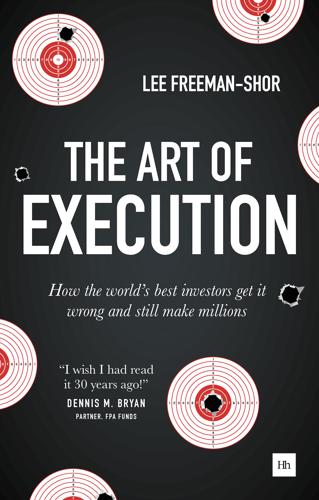
The Art of Execution: How the World's Best Investors Get It Wrong and Still Make Millions
by
Lee Freeman-Shor
Published 8 Sep 2015
Second, ‘knowing more’ often leads to a person not seeing the wood for the trees. Throughout history there have been many examples that demonstrate this. My favourites are Harry Warner, of Warner Bros., who in 1927 said, “Who the hell wants to hear actors talk?”, and Thomas Watson, chairman of IBM, who in 1943 said, “I think there is a world market for maybe five computers.” Experts are surprisingly bad at forecasting. Falling for your own hype can also often lead to mistakes that the least intelligent person in the world would not be capable of. Warren Buffett, when talking about the collapse of Long-Term Capital Management, marvelled at “10 or 15 guys with an average IQ of maybe 170 getting themselves into a position where they can lose all their money”.14 And crowds are often surprisingly wise – the market can be right even when everyone who makes it up is individually wrong.
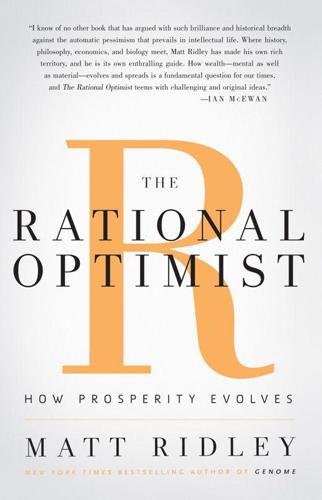
The Rational Optimist: How Prosperity Evolves
by
Matt Ridley
Published 17 May 2010
The world is currently producing 85 million barrels a day and may never produce much more than that. There go the world’s oil reserves. Brown is dead right with his extrapolations, but so was the man who (probably apocryphally) predicted ten feet of horse manure in the streets of London by 1950. So was IBM’s founder Thomas Watson when he said in 1943 that there was a world market for five computers, and Ken Olson, the founder of Digital Equipment Corporation, when he said in 1977: ‘There is no reason anyone would want a computer in their home.’ Both remarks were true enough when computers weighed a tonne and cost a fortune. Even when the British astronomer royal and the British government space adviser said that space travel was respectively ‘bunk’ and ‘utter bilge’ – just before Sputnik flew – they were not wrong when they said it; just the world changed rather soon after they said it.
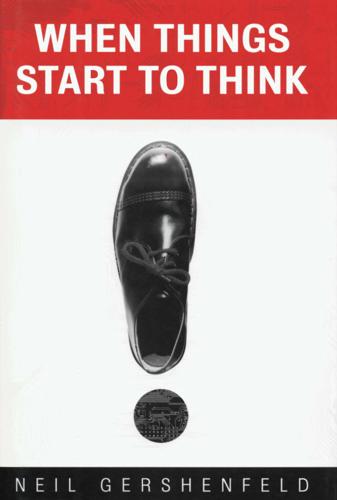
When Things Start to Think
by
Neil A. Gershenfeld
Published 15 Feb 1999
Each of these steps, clearly part of the evolution of life, conferred important benefits that were of value to the species. Moving computing into clothing opens a new era in how we interact with each other, the defining characteristic of what it means to be human. The Personal Fabricator Thomas Watson, the chairman of IBM, observed in 1943 that "I think there is a world market for maybe five computers." In 1997 there were 80 million personal computers sold. To understand his impressive lack of vision, remember that early computers were • • • • • large machines housed in specialized rooms used by skilled operators for fixed industrial operations with a limited market From there it was too hard to conceive of a computer that could fit on a desk without crushing it, much less on a lap.
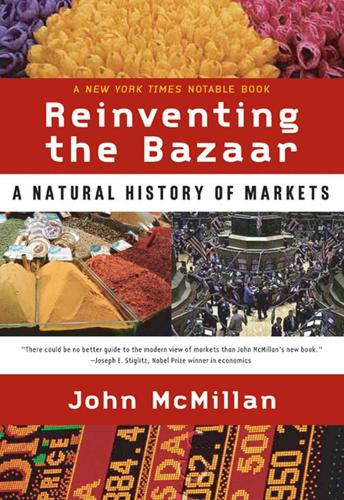
Reinventing the Bazaar: A Natural History of Markets
by
John McMillan
Published 1 Jan 2002
This is not because businesspeople are necessarily smarter than bureaucrats. The folklore of the computer industry, for example, relates a host of wrong predictions from those best placed to know. In 1954, John von Neumann, the mathematical genius who helped invent the computer, said, “I think there is a world market for maybe five computers.” In 1977, Ken Olson, president of Digital Equipment Corp., said, “There is no reason anyone would want a computer in their home.” In 1981, Bill Gates, founder of Microsoft, is reported to have said, “640K ought to be enough for anybody.” Businesspeople are as prone to forecasting error as anyone else.

Beyond: Our Future in Space
by
Chris Impey
Published 12 Apr 2015
At a big-picture level, scientists learn about our world by extrapolating laws of nature or predicting how they will operate in unfamiliar situations. It’s easy to cherry-pick predictions that make the prognosticator look foolish in hindsight. A classic example is that of Thomas Watson, chairman of IBM, who said in 1943: “I think there is a world market for maybe five computers.” Here’s Ken Olsen, cofounder of Digital Equipment Corporation, in 1977: “There’s no reason for any individual to have a computer in his home.” There are many other such miscalculations in the world of information technology, such as the inventor of Ethernet saying the Internet would collapse and die in 1996, and the founder of YouTube saying in 2002 that his company would go nowhere because there just weren’t many videos to watch.2 For the record, in 2014 there were two billion PCs, two billion websites, and 40 billion hours of YouTube videos watched.
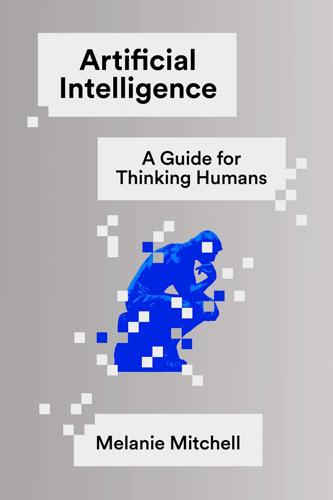
Artificial Intelligence: A Guide for Thinking Humans
by
Melanie Mitchell
Published 14 Oct 2019
Hofstadter has noted Kurzweil’s clever use of what Hofstadter calls the “Christopher Columbus ploy,”38 referring to the Ira Gershwin song “They All Laughed,” which includes the line “They all laughed at Christopher Columbus.” Kurzweil cites numerous quotations from prominent people in history who completely underestimated the progress and impact of technology. Here are a few examples. IBM’s chairman, Thomas J. Watson, in 1943: “I think there is a world market for maybe five computers.” Digital Equipment Corporation’s cofounder Ken Olsen in 1977: “There’s no reason for individuals to have a computer in their home.” Bill Gates in 1981: “640,000 bytes of memory ought to be enough for anybody.”39 Hofstadter, having been stung by his own wrong predictions on computer chess, was hesitant to dismiss Kurzweil’s ideas out of hand, as crazy as they sounded.
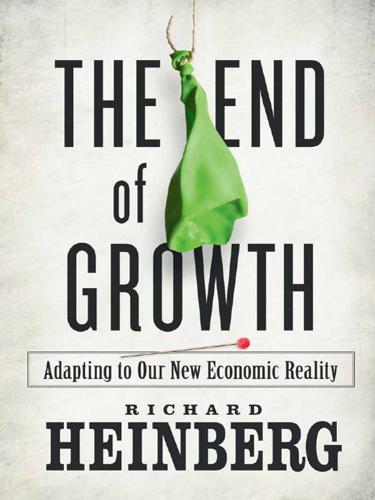
The End of Growth: Adapting to Our New Economic Reality
by
Richard Heinberg
Published 1 Jun 2011
And, despite widespread belief of the opposite, we cannot be certain that there are enough new products or technologies left to be developed for companies to be able to make use of the resources that are going to be freed from existing industries.35 For the skeptical reader such sweeping statements bring to mind the reputed pronouncement by IBM former president Tom Watson in 1943, “I think there is a world market for maybe five computers.” Fortunes continue to be made from new products and business ideas like the iPad, Facebook, 3D television, BluRay DVD, cloud computing, biotech, and nanotech; soon we’ll have computer-controlled 3D printing. However, Larsson would argue that these are in most cases essentially extensions of existing products and processes.
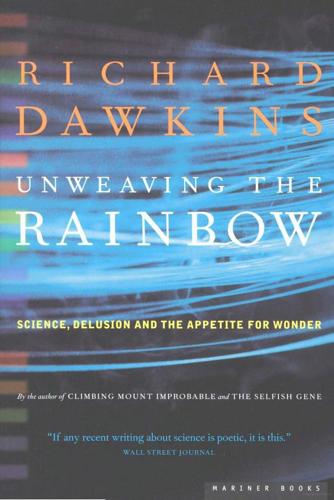
Unweaving the Rainbow
by
Richard Dawkins
Published 7 Aug 2011
Another popular fallacy is to expect enormous speed to be obtained. Pickering goes on to 'prove' by means of authoritative calculations on the effects of air resistance that an aeroplane could never travel faster than the express trains of his day. On the face of it, the 1943 remark of Thomas J. Watson, head of IBM, 'I think there is a world market for maybe five computers' sounds similar. But this is unfair. Watson was surely forecasting that computers would become ever larger, and in this he was wrong; however, he was not downgrading the importance of the computer in the future, the way Kelvin and the others were downgrading air travel. Those banana skin stories are, indeed, awful warnings of the dangers of an over-zealous scepticism.
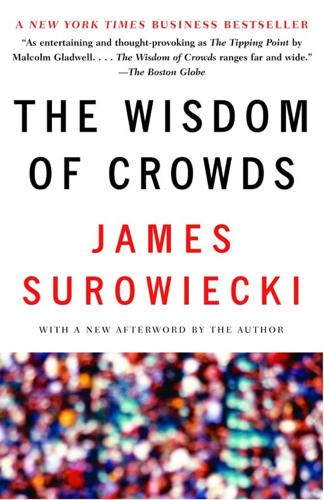
The Wisdom of Crowds
by
James Surowiecki
Published 1 Jan 2004
And much of what we’ve seen so far suggests that a large group of diverse individuals will come up with better and more robust forecasts and make more intelligent decisions than even the most skilled “decision maker.” We’re all familiar with the absurd predictions that business titans have made: Harry Warner of Warner Bros. pronouncing in 1927, “Who the hell wants to hear actors talk?,” or Thomas Watson of IBM declaring in 1943, “I think there is a world market for maybe five computers.” These can be written off as amusing anomalies, since over the course of a century, some smart people are bound to say some dumb things. What can’t be written off, though, is the dismal performance record of most experts. Between 1984 and 1999, for instance, almost 90 percent of mutual-fund managers underperformed the Wilshire 5000 Index, a relatively low bar.
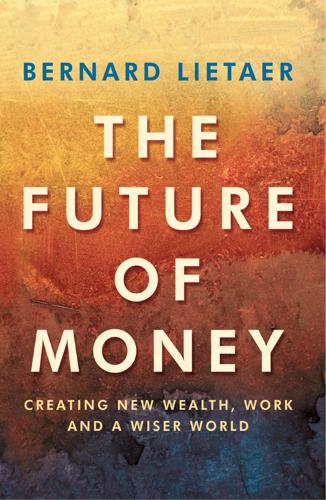
The Future of Money
by
Bernard Lietaer
Published 28 Apr 2013
So it is no surprise that money is again in the forefront in computerized cyberspace. We can expect fundamental changes not only in payment systems for conventional currencies, but also the emergence of new types of money. Post Industrial Society = Knowledge Age In the 1940s, IBM's first Chairman, Thomas Watson, predicted a world market for 'maybe five computers'. By 1975, about 50,000 were operating, and in 1997 more than 140 million. By 1999, there are an additional 600 million computers-on-a-card currently in use worldwide, as well as the innumerable 'invisible computers' that are built into routine appliances - a typical car today contains more computer-processing power than the first spacecraft that landed on the moon in 1969.
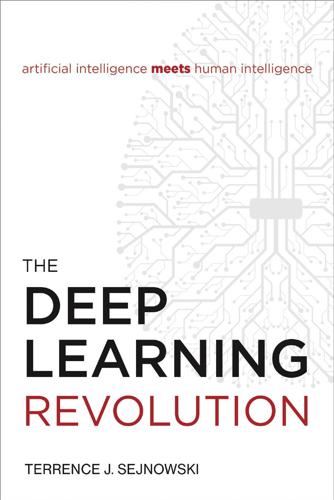
The Deep Learning Revolution (The MIT Press)
by
Terrence J. Sejnowski
Published 27 Sep 2018
Who could have predicted in 1990, when the Internet went commercial, what impact it would have on the music business? On the taxi business? On political campaigns? On almost all aspects of our daily lives? There was a similar failure to imagine how computers would change our lives. Thomas J. Watson, the president of IBM, is widely quoted as saying in 1943: “I think there is a world market for maybe five computers.”3 What’s hard to imagine are the uses to which a new invention will be put, and inventors are no better than anyone else at predicting what those uses will be. There is a lot of room between the utopian and doomsday scenarios that x Preface are being predicted for deep learning and AI, but even the most imaginative science fiction writers are unlikely to guess what their ultimate impact will be.
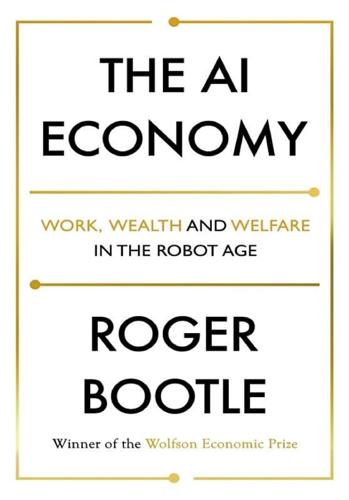
The AI Economy: Work, Wealth and Welfare in the Robot Age
by
Roger Bootle
Published 4 Sep 2019
It is easy to play down its significance, but we should beware. This wouldn’t be the first time that a technological shift was underestimated. Indeed, underestimation of the power of new technology has a distinguished history. In 1943, Thomas J. Watson, a past Chairman of IBM, is supposed to have declared that “there is a world market for about five computers.” In 1949, Popular Mechanics, thought to be a reputable journal, said that “computers in the future may weigh no more than 1½ tons.”5 Fast-forwarding, from the very beginning, the development of the internet met with outright skepticism. In late 1996, Time magazine explained why it would never be mainstream.
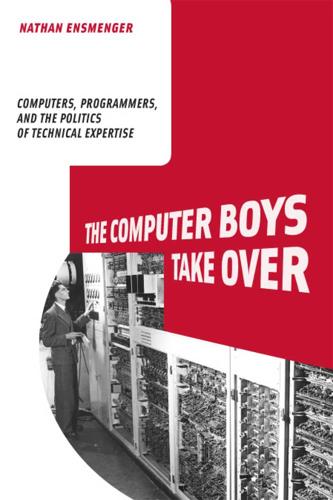
The Computer Boys Take Over: Computers, Programmers, and the Politics of Technical Expertise
by
Nathan L. Ensmenger
Published 31 Jul 2010
—IBM study on programmer performance, 1968 An Unexpected Revolution One of the great myths of the computer revolution is that nobody saw it coming—particularly not the so-called computer experts. In one widely repeated but apocryphal anecdote, Thomas Watson, the legendary founder and longtime chair of the IBM Corporation, is said to have predicted as late as 1943 a total world market for “maybe five computers.” The story of this wildly inaccurate forecast, alternatively attributed to Watson, the Harvard professor and computing pioneer Howard Aiken, or the Cambridge professor of computer science Douglas Hartree, among others, is generally mobilized as a kind of modern morality play, a cautionary tale about the dangers of underestimating the power and rapidity of technological progress.1 Similar tales (similarly apocryphal) are told about a series of unimaginative computer industry executives—from Digital Equipment Corporation’s Ken Olsen to Microsoft’s Bill Gates—whose alleged lack of imagination prevented them from fully appreciating the transformative potential of computer technology.
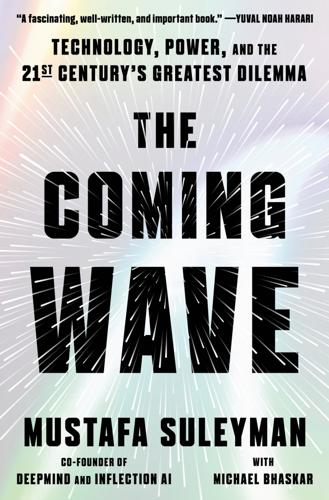
The Coming Wave: Technology, Power, and the Twenty-First Century's Greatest Dilemma
by
Mustafa Suleyman
Published 4 Sep 2023
This crude device, comprising a paper clip, a scrap of gold foil, and a crystal of germanium that could switch electronic signals, laid the basis for the digital age. As with cars, it was by no means obvious to contemporary observers that computing would spread fast. In the late 1940s there were still only a few devices. Early in that decade IBM’s president, Thomas J. Watson, had allegedly (and notoriously) said, “I think there is a world market for about five computers.” Popular Mechanics magazine made a forecast typical of its time in 1949: “Computers in the future may have only 1000 vacuum tubes,” it argued, “and perhaps weigh only 1½ tons.” A decade after Bletchley, there were still only hundreds of computers around the world. We know what happened next.
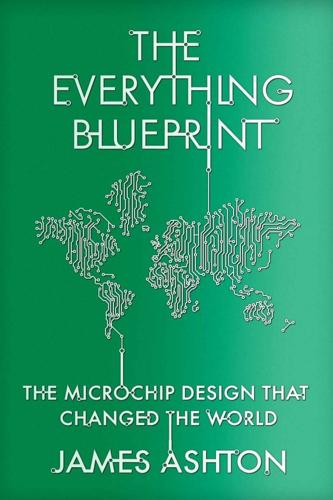
The Everything Blueprint: The Microchip Design That Changed the World
by
James Ashton
Published 11 May 2023
In December 2004, with market leadership a distant memory, IBM offloaded its PC business to Lenovo of China. In the same week, Computer Almanac calculated that IBM-compatible PC sales had reached $3.1tn overall, based on 1.5 billion computers sold.18 It was an astonishing number. IBM’s first chairman, Thomas Watson, is reported to have predicted decades earlier, ‘I think there is a world market for maybe five computers,’ although attribution of his comment is hard to trace. Long before the Lenovo deal, it was clear who the long-term winners of the 1981 launch had been. IBM allowed Microsoft to retain the rights to its operating system and licence to other PC makers that crowded into the market. Nor were restrictions placed on Intel.
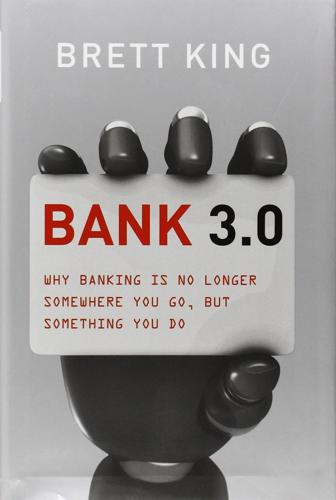
Bank 3.0: Why Banking Is No Longer Somewhere You Go but Something You Do
by
Brett King
Published 26 Dec 2012
By the late 1960s, Moore’s Law had kicked into gear, and miniaturisation and the “’tronics” fad were leading to an increasing appetite for new gadgets and devices. In the late 60s, TV commercials and print advertisements often touted a science fiction-like future for consumers that was just decades away. Technology and innovation were capturing the imagination of society. “I think there is a world market for maybe five computers.” Thomas Watson, IBM Chairman, 1943 In 1975 IBM invented the personal computer. It wouldn’t be launched until a few years later, but it just showed how far technology had come in the three decades since 1943 when the chairman of IBM had envisaged that there would be a total market globally for only five computers.
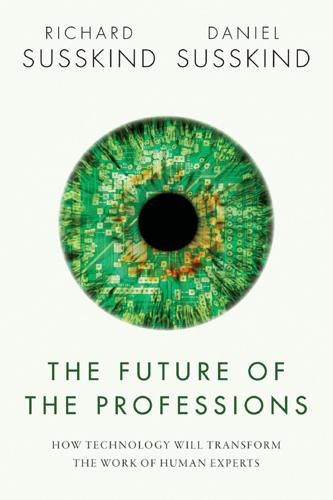
The Future of the Professions: How Technology Will Transform the Work of Human Experts
by
Richard Susskind
and
Daniel Susskind
Published 24 Aug 2015
Secondly, and as dramatically, very small processing and communicating components are being embedded in machinery, buildings, people, animals, clothes, and other everyday objects, and this has application in the work of various professionals (certainly for doctors, dentists, vets, opticians, and architects). It has been estimated that by 2020 there will be 40 to 50 billion devices connected to the Internet.84 Here again we are witnessing exponential growth. In 1943, Thomas J Watson, a past Chairman of IBM, is said to have announced that ‘there is a world market for about five computers’. Six years later a reputable journal, Popular Mechanics, predicted that ‘computers in the future may weigh no more than 1½ tons’.85 We have come a long way. 4.8. Increasingly connected humans When almost 3 billion people are connected to one network, important consequences follow.86 In Box 4.2 we summarize much of what humans do when they are connected.
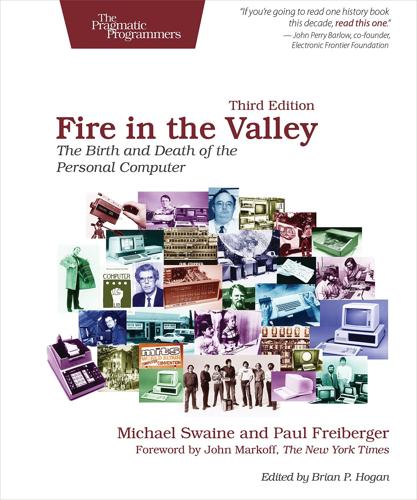
Fire in the Valley: The Birth and Death of the Personal Computer
by
Michael Swaine
and
Paul Freiberger
Published 19 Oct 2014
And the particular culture that created the personal computer—that mixture of ’60s radicalism, entrepreneurship, and technical nerdiness, and that impossible yearning to own your own computer—that’s history now. This is the history of that culture and that revolution. Copyright © 2014, The Pragmatic Bookshelf. Chapter 1 Tinder for the Fire I think there is a world market for maybe five computers. Thomas Watson, chairman of IBM The personal computer sprang to life in the mid-1970s, but its historical roots reach back to the giant electronic brains of the 1950s, and well before that to the thinking machines of 19th-century fiction. Steam I wish to God these calculations had been executed by steam.
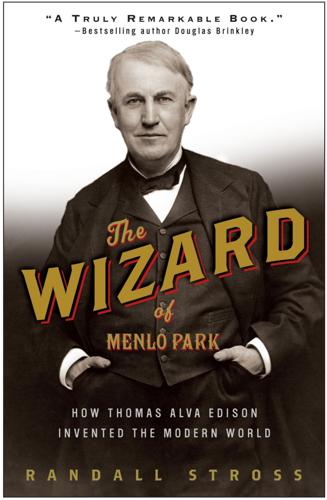
The Wizard of Menlo Park: How Thomas Alva Edison Invented the Modern World
by
Randall E. Stross
Published 13 Mar 2007
As pleased as they were: Ramsaye, Million and One Nights, 110–112. others urged Edison: Ramsaye, Million and One Nights, 119. “there will be a use”: Edison’s prediction brings to mind the prediction invariably attributed to IBM chairman Thomas J. Watson, circa 1943: “I think there is a world market for maybe five computers.” The Watson quotation turns out to be difficult to verify. Biographer Kevin Maney did his best and concluded, “No evidence exists that Watson made the remark about five computers.” See Kevin Maney, The Maverick and His Machine: Thomas Watson, Sr., and the Making of IBM (Hoboken, N.J.: John Wiley & Sons, 2003), 355.
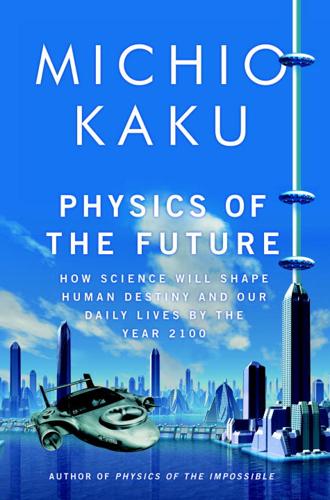
Physics of the Future: How Science Will Shape Human Destiny and Our Daily Lives by the Year 2100
by
Michio Kaku
Published 15 Mar 2011
Sometimes experts in their own field underestimated what was happening right beneath their noses. In 1927, Harry M. Warner, one of the founders of Warner Brothers, remarked during the era of silent movies, “Who the hell wants to hear actors talk?” And Thomas Watson, chairman of IBM, said in 1943, “I think there is a world market for maybe five computers.” This underestimation of the power of scientific discovery even extended to the venerable New York Times. (In 1903, the Times declared that flying machines were a waste of time, just a week before the Wright brothers successfully flew their airplane at Kitty Hawk, North Carolina.
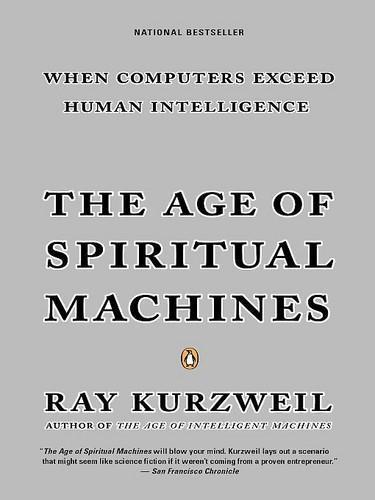
The Age of Spiritual Machines: When Computers Exceed Human Intelligence
by
Ray Kurzweil
Published 31 Dec 1998
—Lord Kelvin, 1895 “The most important fundamental laws and facts of physical science have all been discovered, and these are now so firmly established that the possibility of their ever being supplemented by new discoveries is exceedingly remote.” —Albert Abraham Michelson, 1903 “Airplanes have no military value.” —Professor Marshal Foch, 1912 “I think there is a world market for maybe five computers.” —IBM Chairman Thomas Watson, 1943 “Computers in the future may weigh no more than 1.5 tons.” —Popular Mechanics, 1949 “It would appear that we have reached the limits of what is possible to achieve with computer technology, although one should be careful with such statements, as they tend to sound pretty silly in five years.”

Them And Us: Politics, Greed And Inequality - Why We Need A Fair Society
by
Will Hutton
Published 30 Sep 2010
Furthermore, incumbents have a proven business model, entrenched advantages and political networks to support them. History is littered with the custodians of the status quo insisting that the new has no value. The computer, data processing and the PC faced a particularly steep uphill task. ‘I think there is a world market for maybe five computers,’ declared Thomas Watson, chairman of IBM, in 1943. Ken Olsen, chairman and founder of Digital Equipment Corp, said in 1973: ‘There is no reason anyone would want a computer in their home.’ Steve Jobs, the founder of Apple, remembers his early rejections as he tried to interest investors in the personal computer: ‘So we went to Atari and said, “Hey, we’ve got this amazing thing, even built with some of your parts, and what do you think about funding us?
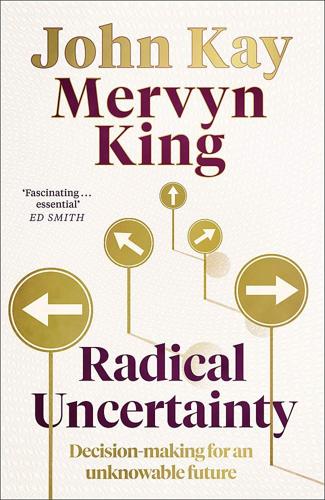
Radical Uncertainty: Decision-Making for an Unknowable Future
by
Mervyn King
and
John Kay
Published 5 Mar 2020
What Steve Jobs knew Thomas Watson Jr followed his father, Tom Sr, as CEO of IBM and over half a century they built a company which came to dominate the global computer market from its beginnings in the 1950s until the personal computer revolution of the 1980s. The observation – widely attributed to Watson Jr – that there would be a world market for only five computers is apocryphal. But these IBM machines were enormous. In the 1970s, a university or a large corporation would have a single computer. The authors remember carrying boxes of punched cards to the Oxford University computer, housed in a vast air-conditioned basement in Banbury Road, or to the Cambridge University computer at the appropriately named New Museums Site.
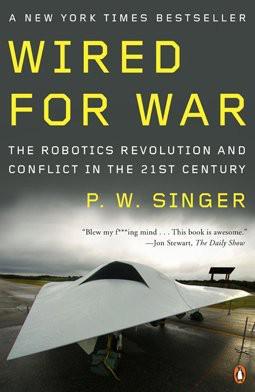
Wired for War: The Robotics Revolution and Conflict in the 21st Century
by
P. W. Singer
Published 1 Jan 2010
Indeed, Philip Tetlock, in his award-winning study Expert Political Judgment, found that the professional “experts” who advise government are actually more often wrong in their predictions than right. Industry equally has a mixed track record. For example, IBM president Thomas Watson famously said in 1943, “I think there is a world market for maybe five computers.” When it comes to war, the same pattern holds. As a 2006 article in Armed Forces Journal, one of the leading magazines for U.S. military officers, notes, “We don’t do well, historically, in predicting the location and nature of the next war.” For example, Sir Arthur Conan Doyle, the creator of Sherlock Holmes, wrote a short story in 1914, just before World War I started.
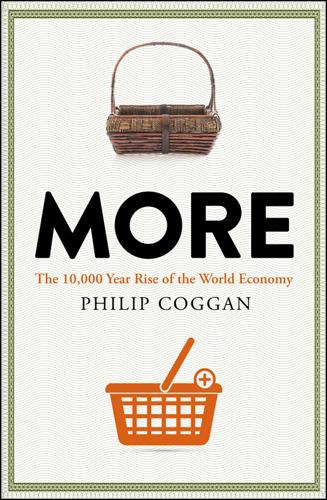
More: The 10,000-Year Rise of the World Economy
by
Philip Coggan
Published 6 Feb 2020